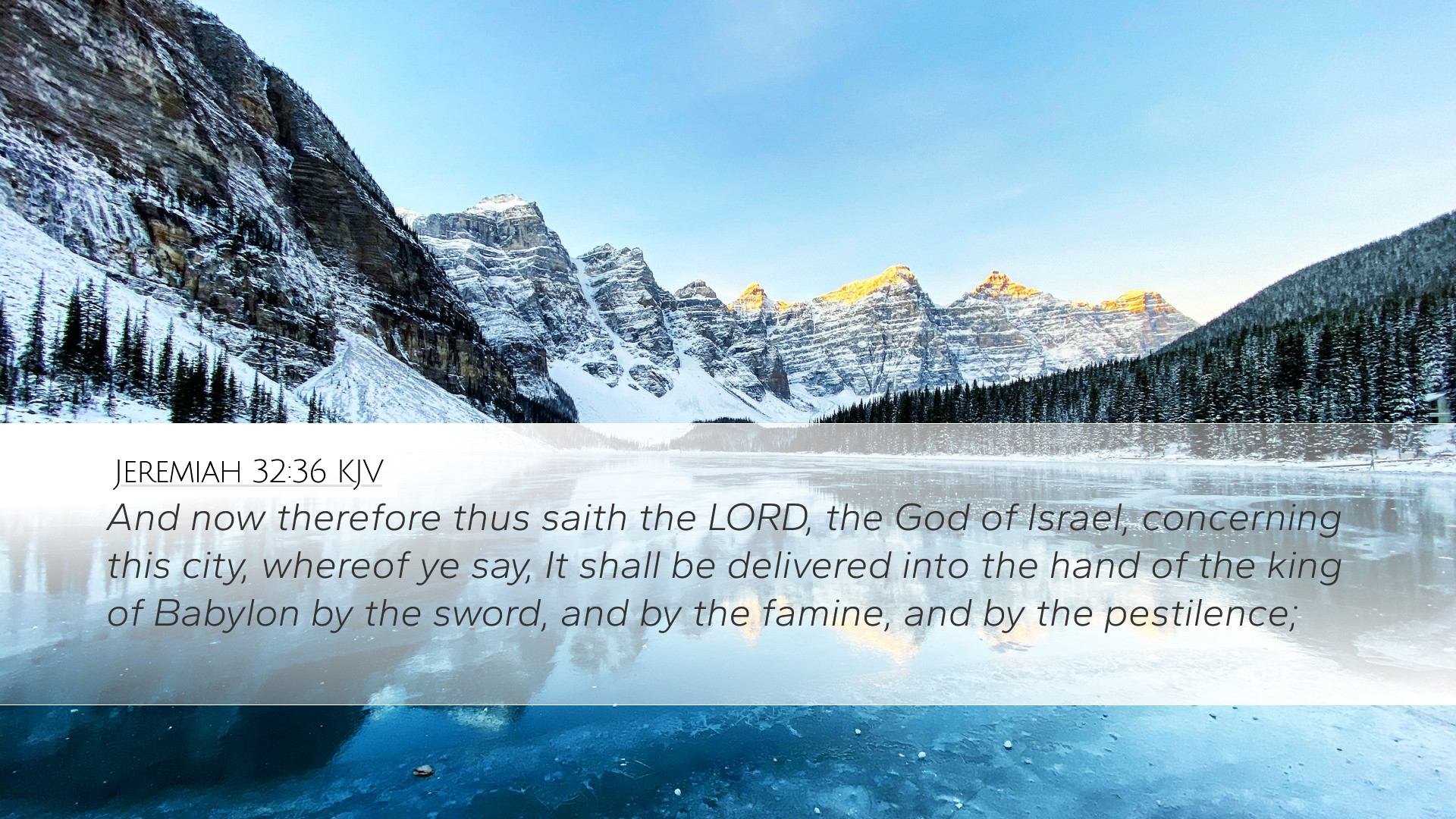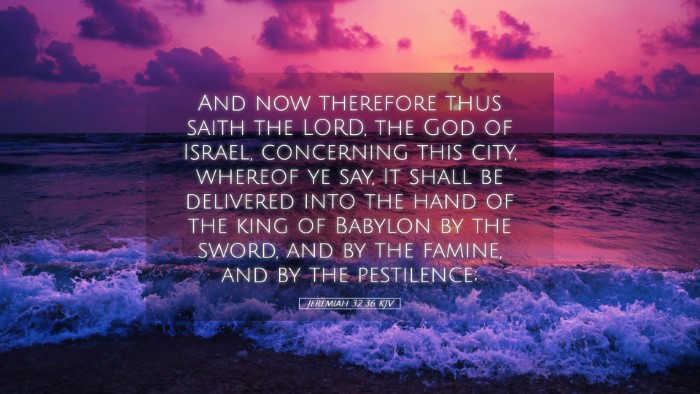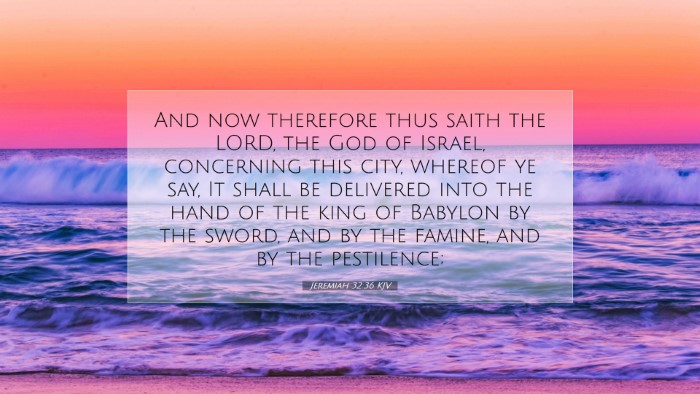Commentary on Jeremiah 32:36
Jeremiah 32:36 states:
"And now therefore thus saith the Lord, the God of Israel, concerning this city, whereof ye say, It shall be delivered into the hand of the king of Babylon by the sword, and by the famine, and by the pestilence."
Introduction
This verse encapsulates a crucial moment in the prophetic ministry of Jeremiah. It reflects the dire situation in Jerusalem during the Babylonian siege and the overwhelming despair of the people. This commentary draws on insights from various public domain commentaries, providing depth and multiple perspectives for pastors, scholars, and students of Scripture.
Contextual Background
To understand Jeremiah 32:36, one must grasp the context of this passage. Jeremiah prophesied around the time of the Babylonian invasion. The people of Judah were terrified, and many believed that the city was doomed to fall. This despair is underscored by their dire predictions of the city's fate: conquest by enemy forces and suffering from famine and disease.
Historical Significance
The historical significance of this prophecy cannot be overstated. The Babylonian invasion marked the end of the southern kingdom of Judah and led to the Babylonian Exile, a period of significant theological reflection and transformation for the Jewish people.
Analysis of the Text
Divine Sovereignty
Matthew Henry emphasizes that the Lord’s declaration in this verse shows His sovereignty over nations and their destinies. God is not taken by surprise by the events unfolding in Jerusalem. Rather, He is actively involved, allowing these calamities to occur as a means of judgment and an opportunity for eventual restoration.
The Certainty of Judgment
Albert Barnes notes the reality of divine judgment evident in this verse. The people of Judah responded to prophetic warnings with disbelief, leading to their eventual downfall. Jeremiah’s words serve as a reminder that God’s judgments are pronounced with certainty, and the consequences of sin must be reckoned with seriously.
Spiritual Implications
Hope Amid Despair
While Jeremiah 32:36 speaks of calamity, Adam Clarke points out that these moments also serve to awaken hope. God's prophetic declarations, even amidst judgment, can foreshadow restoration. Clarke notes that recognizing the seriousness of God’s judgments enables believers to appreciate the magnitude of His grace when redemption is offered.
Divine Compassion
Despite declaring doom, God's ultimate purpose is one of compassion and restoration. This narrative encourages reflection on God’s character—how He responds to human rebellion with both righteousness and mercy.
Applications for the Faith Community
Encouragement to Pastors
For pastors, this text serves as a reminder to address sin and judgment with clarity, offering the congregation hope through repentance. It is vital to balance messages of warning with the promise of restoration, creating a comprehensive picture of God’s heart.
Message for Theological Students
Students of theology can draw from this passage the importance of engaging with the context of Scripture. Understanding the historical and cultural elements enhances one’s comprehension of theological implications, allowing for richer preaching and teaching.
For Scholars
Academic analysis of Jeremiah 32:36 can foster discourse about prophecy, theodicy, and the nature of divine judgment. Scholars may delve into intertextual studies within the prophetic canon, exploring how Jeremiah's message resonates with other prophetic writings, particularly within the context of exile.
Conclusion
Jeremiah 32:36 challenges believers to grapple with the repercussions of disobedience while simultaneously inviting them to embrace God’s ultimate purpose of redemption. The richness of its meaning unfolds through careful reflection, making it a valuable text for all who seek to deepen their understanding of God’s Word and His ways in human history.


